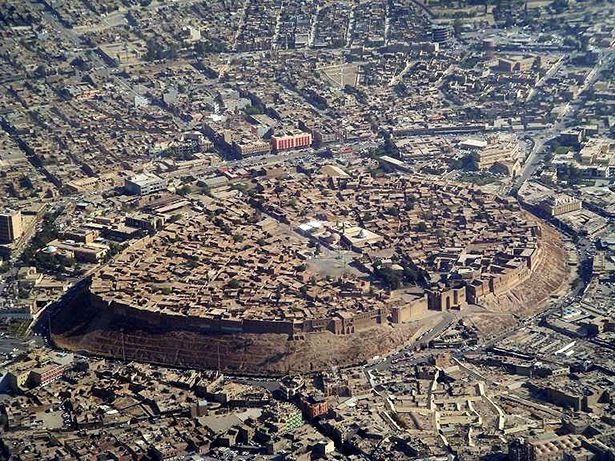Haus der Kulturen der Welt, Berlin, Germany
Deadline: (EN) 2015-06-01

Erbil (Kurdistan)—identified by UNESCO as the longest continuously inhabited site in the world. Jim Gordon, 2007. Photograph, CC-BY 2.0.
The housing question is universal. Everywhere, it speaks differently but directly to the challenges that define our times: inequality, ecological crisis, displacement, refuge, migration, privatization and more. Against this backdrop, Haus der Kulturen der Welt, Berlin (HKW) aims to rethink the housing question in terms of a global housing system.
During the century and a half since Friedrich Engels published the series of articles titled « Zur Wohnungsfrage » what was once a housing question became a global system. This housing system is at the center of the theoretical and practical approach of the Wohnungsfrage Academy directed by Reinhold Martin (Buell Center, Columbia University) in collaboration with Nikolaus Hirsch (co-curator of HKW’s project Wohnungsfrage). Over the course of one week, the Academy will bring together scholars, practitioners, artists and other experts from various fields and disciplines and provide the context for cross-disciplinary inquiry of this system.
Encouraging new modes of transdisciplinary discourse and research, Wohnungsfrage forms the frame of the Academy. It investigates the relationship between architecture, housing and social reality. In an exhibition of experimental housing formats, a series of publications, a discursive public program and the international Wohnungsfrage Academy, the project aims to stimulate the discourse on social, affordable and self-determined housing. The Wohnungsfrage program is curated by Jesko Fezer, Nikolaus Hirsch, Wilfried Kuehn, and Hila Peleg and will initiate a collaborative process among international and local actors in architecture, urban planning, politics, art, science, and activism.
The term « housing system » describes a transnational, relational field, a network of interactions that cannot be reduced to official policies, architectural typologies, or market imagery. Neither does it refer to unspecified « global » connections. Instead, it can be seen as a highly specific, highly differentiated mixture of laws, politics, investments, activities, objects, proposals, practices, and imaginaries, held together—and apart—by infrastructures of all sorts: technological, financial, social, institutional, and spatial.
The Academy has three basic goals. The first is to provide participants with the analytical tools to recognize the housing system and to see it at work in any of its parts—in a single block, a single building, or a single room—anywhere. The starting point is to learn how to read different subsystems and deal with complexities. The second goal is to identify the particular hegemonies—the modes of power and of exploitation, the inequities and the exclusions—that guide the system. Thirdly, it aims to open the imagination to possible alternatives and to the means by which these might be discussed in a critical fashion. These insights will be used to test possibilities of practical action. Together with 16 tutors, 60 Academy participants will examine in detail a series of examples, excerpted from the housing system, from all over the world. The participants will interpret this material in different formats and constellations; they will analyze it; they will add to it; they will isolate facts and compare values; they will narrate histories; they will debate assumptions; they will test hypotheses; they will outline strategies.
Applicants
This call is addressed to doctoral students (or equivalent) from a wide range of disciplinary backgrounds as well as highly motivated advanced master’s degree candidates or advanced professional degree candidates. Postdocs are also encouraged to apply and the call also extends to researchers and actors from outside of academia, including initiatives from civil society, the arts, and politics.
Procedure
Open call deadline: June 1, 2015
All applications must be submitted by June 1, 2015. Applicants must submit a CV and a brief description of their interest in the housing system in general—as well as the Academy in particular—and name a reference person.
Funding
No tuition is charged for participation. The participants are expected to procure their own travel funding. A very limited number of need-based travel grants can be provided. Please indicate and specify your need in the application.
Contact
For further questions or information, contact: housing@hkw.de
Haus der Kulturen der Welt
John-Foster-Dulles-Allee 10
D-10557 Berlin